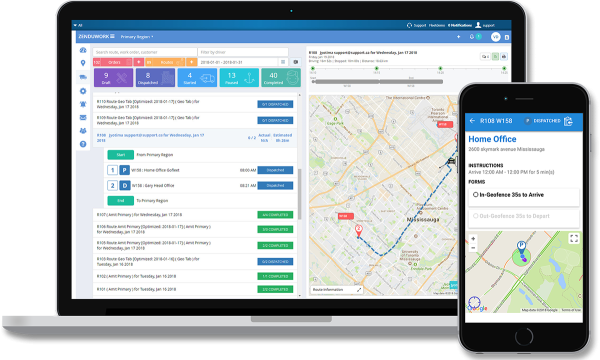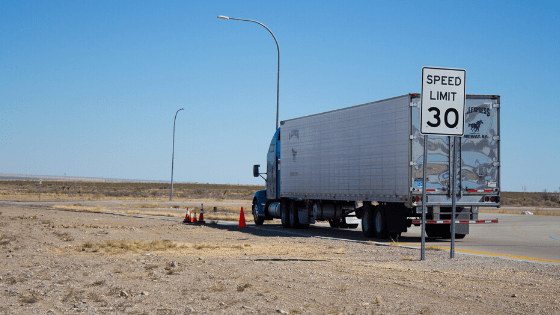Eight Ways to Reduce Fuel Costs for Your Fleets
May 21, 2022
Increasing fuel costs are putting a strain on fleet owners, pressuring them to find alternative ways to reduce fuel costs for fleets.
Tightening a fuel budget is not easy to do, especially considering the demand from consumers and businesses to expedite delivery times over long distances.
The fleet industry is in a constant search for ways to reduce fuel costs without delaying shipments or limiting business growth.
Rather than cutting back on logistics operations, the following are several effective methods that can help fleets of all types and sizes reduce fuel costs.
#1: Eliminate Unnecessary Idling
When a vehicle idles, it consumes more fuel than if the vehicle was turned off. According to the U.S. Department of Energy, idling can consume as much as a quarter to half a gallon of fuel each hour. It’s very common for drivers to idle vehicles when warming up the engine in the morning, loading or unloading, or while waiting for some other requirement.
#2: Reduce Freight
The amount of freight placed in a truck plays a key role in fuel consumption. A large amount of freight is going to require more fuel to move it around, yet it is often the case that companies need to load as much as possible onto a vehicle to get their payload where it needs to go.
The key is to strike a balance between the amount of product loaded onto a vehicle and the amount of fuel consumed. As we will see in the next section, an increase in payload can also have an adverse effect on vehicle health.
#3: Maintain Vehicles
Routine maintenance can be a big factor when it comes to keeping vehicles in good overall condition. Regular maintenance also helps to ensure that vehicles operate efficiently.
Routine procedures such as oil changes and ensuring that tires are properly inflated and cared for can go a long way in saving fuel.
Tire pressure is a big deal; proper inflation can help to reduce fuel costs and promote driver safety as well. An under-inflated vehicle can reduce fuel economy by as much as 1.2% for every 1 PSI under the required pressure in the tires.
#4: Reduce Vehicle Drag
Drag can slow a vehicle down and cause it to use more fuel to keep it moving. The larger the vehicle, the more drag that occurs.
There are some effective ways to reduce drag, improve aerodynamics and reduce fuel consumption. This can be done using front fascia and an air dam. It can also mean using tails that work to taper extensions off the trailer that help to reduce the wake.
The key here is to redirect air away from the truck or vehicle to allow it to move beyond the vehicle without as much pressure.

#5: Improve Driver Habits
It is also important to work with drivers to minimize the onset of higher fuel costs. That may mean changing key driving habits that can lead to fuel waste.
This includes speeding, distracted driving, and harsh braking. The more times that a vehicle speeds up and lowers its speed, the more fuel is being used by the vehicle.
For example, some drivers are prone to braking hard and often, leading to the engine having to rev up and use more fuel more often on a given trip.
The goal is to maintain a steady level of operation to maximize fuel consumption.

#6: Map Efficient Routes
Optimizing routes doesn’t just mean finding the shortest path from A to B; it can include time windows for deliveries, the number of required stops along the route, the number of intersection and left-hand turns, or traffic congestion.
Using route optimization software can improve overall fleet activity while also offering significant fuel savings.
For example, ZenduWork is a dispatching software that helps fleet managers optimize routes and communicate with drivers in real-time.
ZenduWork can help drivers avoid traffic congestion (and subsequent idling), combine similar routes to eliminate the number of vehicles on the road, and access drivers directly to determine ETAs.
#7: Choose the Right Vehicles
Not many fleets can afford to switch to more fuel-efficient or electronic vehicles (EVs) all at once but may be able to upgrade a few vehicles over time.
Choosing the vehicles that offer the best overall fuel economy will help save costs and improve operations.
#8: Use the Right Software Solutions for Your Fleet
Whether you choose ZenduWork for your dispatching and route optimization needs, or Zendu Maintenance to run your fleet maintenance operations more efficiently, ZenduiT has scalable, customizable solutions for fleets of all sizes.
The right software solution can provide insights into areas of opportunity, such as tackling maintenance schedules or alerts to adjust tire pressure.
Ultimately, it takes a combined effort with your drivers to ensure your fleet operates at maximum efficiency. Contact us at ZenduiT and ask how our software solutions can help you reduce fuel costs.


